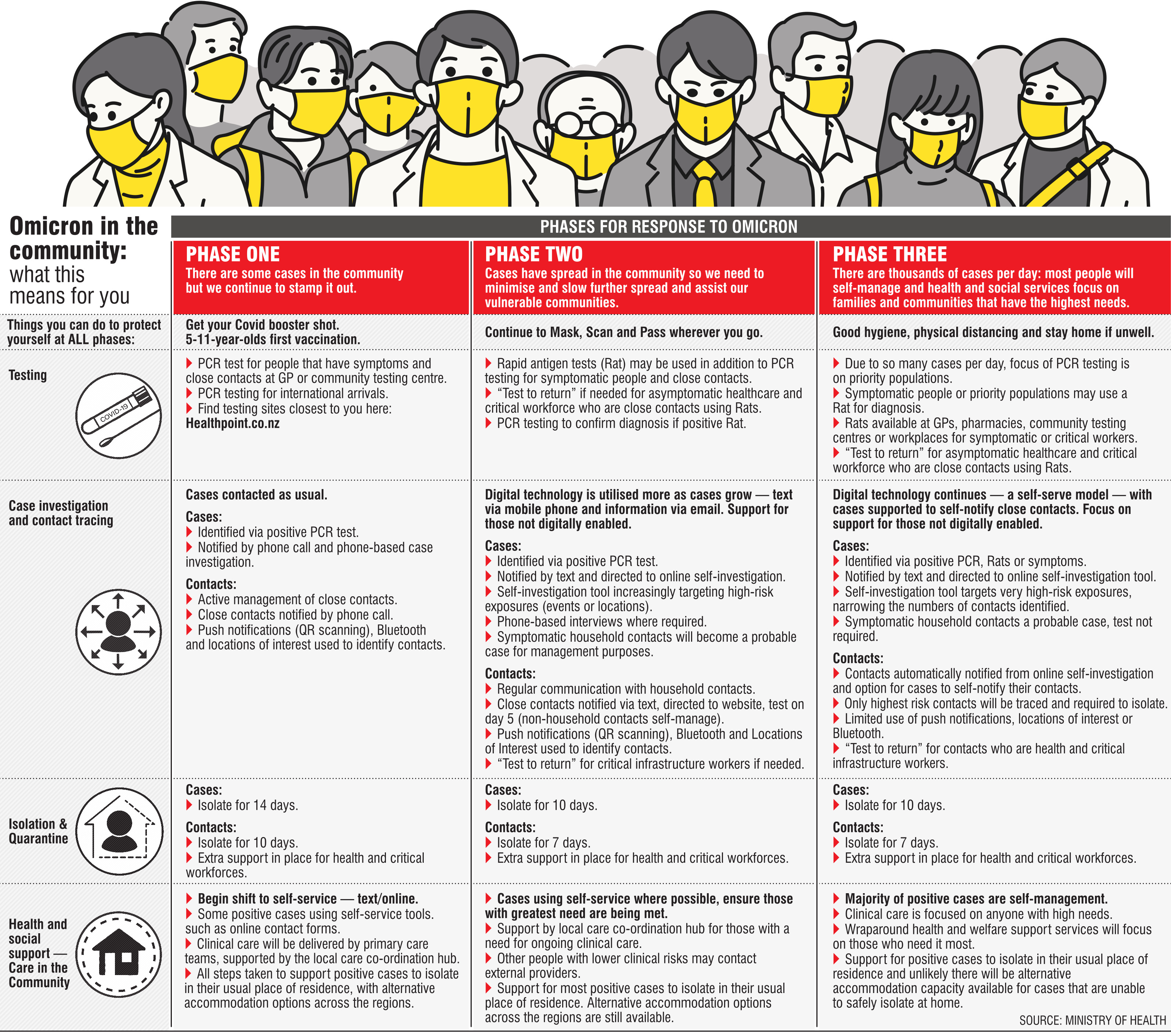Twenty-three new community cases of Covid-19 were reported by the Ministry of Health yesterday, with 56 Omicron cases in the community now, 21 up from Tuesday.
Shortly after Associate Health Minister Dr Ayesha Verrall unveiled the Government’s three-phase public health response spread of Omicron, laboratory technicians, on whose shoulders the burden of increased Covid testing will fall, remained unconvinced.
New Zealand Institute of Medical Laboratory Science president Terry Taylor, of Dunedin, said he was more worried than ever testing labs would be overrun.
Dr Verrall said the plan’s three phases would adapt.
Phase one was similar to now with contact tracing, isolation and requests everyone who was symptomatic be tested.

In phase one, positive cases would need to isolate for 14 days and close contacts for 10 days.
"Our objective is to keep cases as low as possible for as long as possible to allow people to be boosted and children to be vaccinated."
The objective of phase two was to slow the spread to protect vulnerable communities.
The system would be adjusted to focus on identifying those who were at greater risk of severe illness, which would be a smaller percentage of cases.
Positive cases would need to isolate for 10 days and close contacts for seven.
Household contacts would be actively managed by contact tracing services, with close contacts requiring a PCR test on day five of isolation.
Digital technology would be used more in this phase, with information provided via text and email with phone-based interviews.
In phase two asymptomatic critical workers, such as those in healthcare and food supply who were close contacts of cases would be able to return to the workforce.
Phase three would be when cases were in the thousands, and would introduce more changes to contract tracing, and a change to the definition of close contacts.
Only household and household like contacts would need to isolate.

Mr Taylor said that in phase two, cases would start to rise and the requirement for close contacts to have a PCR test on day five would lead to much more work for testing labs.
Testing would be bottlenecked by the time and manpower it took to take swabs he said, and once the virus was in the community there would also be fewer lab workers available, as many would get sick.
In a small number of cases swabs could be tested in bulk, but once Covid was widespread in the community, tests would have to be done individually, slowing the process even more, Mr Taylor said.
Labs were responsible for more than just Covid-19 tests and the issues would slow the entire health system.
‘‘If we overrun the labs, we overrun the health system."
Lab staff were resilient and the institute was trying its best to keep everything working well, he said.
Former Dunedin nurse and New Zealand Nurses Organisation industrial services manager said nurses were already tired and the workforce would not be sustainable as cases rose.
The rapid antigen tests allowing asymptomatic close contacts to return to work would help sustain the workforce, but workers were depleting and there was a lot of anxiety among nurses, she said.
University of Otago Wellington epidemiologist Prof Michael Baker said the three phase plan was sound and sensible.
The changes to the isolation timings and the contact definitions made sense, as it was not about treating Omicron as if it were a Delta outbreak.
With an outbreak that could not be suppressed it was less critical to stop every case from spreading.
He believed the waiting period for booster shots should be lowered to three months to best make use of the time that phase one offered.
The Southern District Health Board yesterday encouraged all eligible people to get their boosters now.
Medical officer of health Dr Susan Jack said it took about two weeks for the body to build protection against Covid-19 after the vaccination.
About 65% of eligible people in the district had received their booster shot, Dr Jack said.














